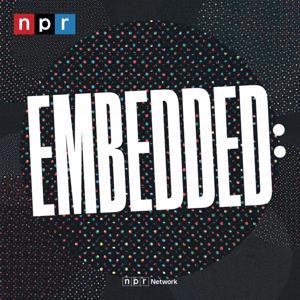
Sign up to save your podcasts
Or



By Center for Public Integrity





4.8
346346 ratings



The podcast currently has 19 episodes available.






ReShonda finds a potential home for her bank and a kindred spirit. And she faces new challenges.




The podcast currently has 19 episodes available.

30,823 Listeners

26,246 Listeners

8,485 Listeners

3,556 Listeners

11,963 Listeners

112,847 Listeners

56,903 Listeners

1,795 Listeners

23,894 Listeners

9,570 Listeners

5,571 Listeners

16,366 Listeners

7,106 Listeners

1,317 Listeners

305 Listeners